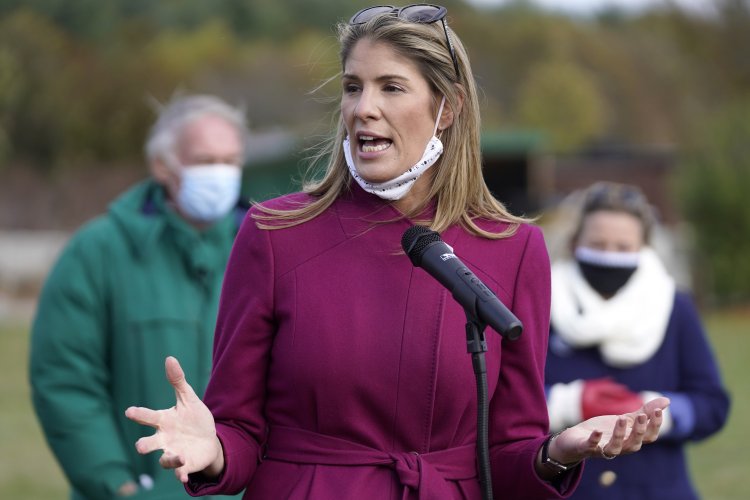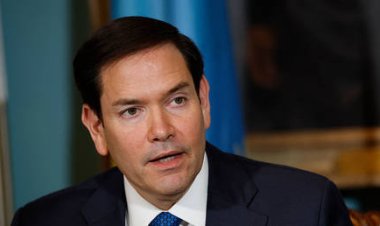Democrats seek to remove Elon Musk from government roles, but he may remain in their campaign advertisements.
The party is currently discussing the potential political relevance of the billionaire known for his efforts to reduce bureaucracy as we approach the year 2026.

Following their victory in Wisconsin’s Supreme Court race and polling that shows Musk's popularity declining, Democratic candidates and strategists believe there’s a political benefit in criticizing the billionaire who has partnered with President Donald Trump in reducing government programs.
However, there are apprehensions within the party regarding Musk's capacity to maintain his spotlight. Trump has reportedly indicated to confidants that Musk may soon step back from his aggressive stance, and he has taken recent actions to limit the power of his adviser. In addition, recent controversies surrounding Musk’s Department of Government Efficiency have been overshadowed by Trump’s global tariff threats.
This has led key Democratic strategists to hesitate in committing to a solid strategy at this stage.
“As long as he’s there using a chainsaw to all the programs that people back home rely on and need to make ends meet, of course we’re going to make him a central character,” said Massachusetts Rep. Lori Trahan, co-chair of House Democrats’ messaging committee, in a recent interview.
“But at some point, he will become a liability for the president, and they will sever ties,” Trahan added. “And we will adjust as we head into the midterms.”
For the moment, enthusiasm remains strong among Democrats for highlighting Musk. Senate candidates are initiating their campaigns by linking him to Republican initiatives perceived as favoring the wealthy. Some House Democrats are eager for Musk to continue playing a role in pivotal races, enabling them to use him as a target.
In Virginia, a key off-year battleground, Democrats are exploring how far anti-Musk sentiment can carry them, making the head of the Department of Government Efficiency a main focus in gubernatorial and legislative campaigns.
Democrats have reasons to believe that a split between Trump and Musk is not imminent. Recent polling indicates Americans generally hold a more negative view of Musk than of Trump. Moreover, targeting the billionaire has served as an early rallying cry for Democrats who initially struggled to forge a unified narrative in the initial weeks of Trump’s second term.
The party has seen some success in channeling public ire at Musk and Trump’s aggressive approaches to federal agencies and essential safety-net programs. They leveraged this to achieve a 10-point victory in Wisconsin’s Supreme Court election earlier this month, despite Musk investing significantly in the Republican-affiliated candidate. Democrats also effectively criticized Musk in Florida, where they exceeded expectations in two special House elections.
In their campaign launches, Rep. Chris Pappas, who is vying for retiring Sen. Jeanne Shaheen’s seat in New Hampshire, condemned a system “rigged” for “billionaires like Elon Musk.” Abdul El-Sayed’s recent comments were even sharper, stating the need to “break the chokehold … Donald Trump and Elon Musk have on our politics and economy.” Others have cautioned that Musk's financial power could pose a serious challenge during fundraising efforts.
“Right now, [Musk] is both literally and symbolically the best foil for Democrats,” stated Democratic pollster Paul Maslin. “Trump has taught us that politics works best when you’re simple and clear, and going after Musk’s power grab and Musk’s money grab … is simple.”
Yet, there is a movement within the party to expand their focus beyond Musk, as some Democrats argue that he represents just one of many billionaires who are benefiting from a president whose policies tend to enrich them. Others emphasize the need for kitchen-table messaging to reconnect with working-class voters who have been drifting toward Trump, with some seeking ways to merge these approaches.
Musk is currently viewed as “a terrible net negative” for Republicans, according to Mark Longabaugh, a seasoned Democratic strategist and former adviser to Bernie Sanders. However, he believes the emphasis should remain on economic issues, pointing to Trump’s actions that harm the economy rather than alleviate inflation, particularly regarding cuts to Medicaid and threats to Social Security, which he believes should be the central focus.
The House Democrats' campaign arm is positioning Musk as part of their broader economic narrative.
"Democrats are going to win by highlighting the fact that Republicans are failing at lowering costs because they are too busy pushing tax breaks for the ultra-wealthy and big corporations, while making the rest of us pay for them," said Viet Shelton, a spokesperson for the Democratic Congressional Campaign Committee. "Elon is, and forever will be, an instantly recognizable manifestation of the fact that House Republicans don’t work for the American people; they work for the billionaires.”
There is a collective understanding that what is politically significant now may not hold the same relevance in 2026. The recent drama surrounding tariffs has demonstrated that numerous influential factors could emerge before the midterms, with many Democrats fixating on economic issues.
Rep. Susie Lee, a vulnerable Democrat from Nevada whose district Trump won last year, noted that while Musk is indeed “definitely not popular” currently in her state, there’s considerable time before the midterms.
Many Democrats express a desire to minimize Musk’s role in government swiftly. Rep. Greg Casar, who leads the Congressional Progressive Caucus, aims to see Musk out of the White House by June when his “special government employee” status reaches its 130-day limit.
However, Casar also conveyed that Musk’s departure from his official role wouldn’t eliminate his political presence: “I believe we can fire him, but he will still be a problem.”
Jessica Kline for TROIB News
Find more stories on Business, Economy and Finance in TROIB business












